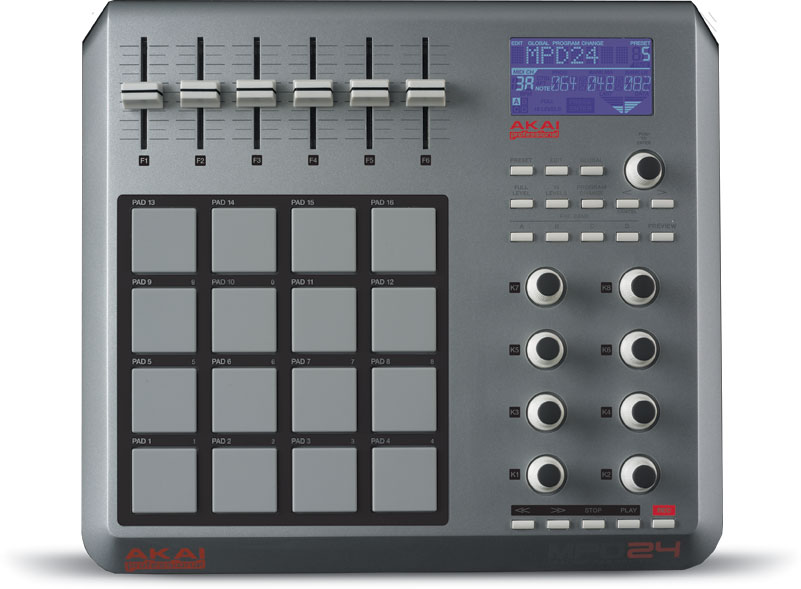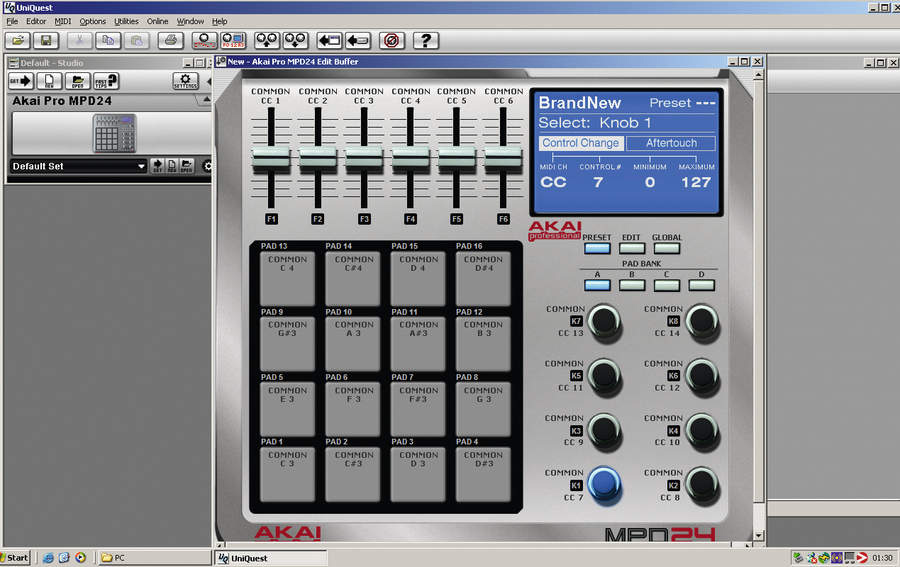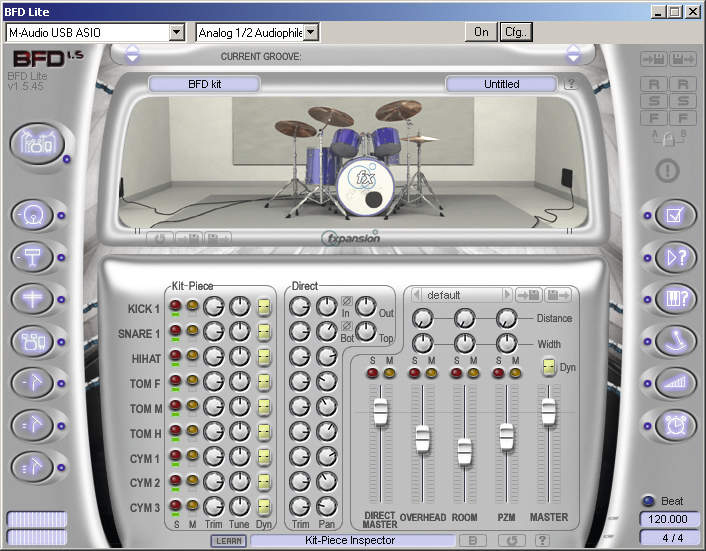MusicRadar Verdict
If you're seeking an MPC-style MIDI controller, the MPD24 fits the bill. Not everyone will like the way it plays, though, so try it before you buy.
Pros
- +
Those classic Akai pads are back. The knobs and faders feel great. BFD Lite is a very nice extra. Plenty of presets.
Cons
- -
The pads won’t be to everyone’s taste. No power supply. Transport controls send MMC data only.
MusicRadar's got your back



Akai´s legendary range of MPC samplers debuted with the MPC60 back in 1988. Its 16 pressure- and velocity-sensitive pads became the MPC range´s trademark, that quick and easy beat-programming making it a big hit in hip-hop circles. It´s this appealing ease-of-use of that Akai are looking to recapture with the new MPD24.
This isn´t the first time Akai have launched an MPC-alike MIDI controller: the MPD16 was released back in 2002. Although this offered a reasonable approximation of the MPC´s front panel, it wasn´t without its problems, such as the lack of any kind of display and some quirky pad behaviour. The MPD24 certainly looks like a more serious piece of kit, but have Akai managed to sort out the performance issues under the hood?
Features
The MPD24 gives you six sliders and eight knobs (all of which send CC messages), 16 MPC pads and a small selection of transport controls. The unit plugs into a USB port via an included cable that both carries data and provides the power. If you do want to use the unit away from your computer to transmit MIDI (it has a MIDI Out), you can do so by plugging in a 6V mains adapter. You don´t get one of these in the box, though - it´s an optional extra.
The MPD24 is plug-and-play in the truest sense: as soon as your sequencer recognises it as a MIDI input, you can start bashing away. There´s no real need to delve into preset storing and editing if you don´t want to. Simple controls such as the Full Level button (which sets the velocity output of each pad to 127) ensure that you can get MIDI data into your sequencer with the minimum of fuss. The equally-useful 16 Level Mode, which sets each pad to transmit the same note value but at a different velocity, is another boon, particularly for recording each hit in a drum pattern as a separate take.
So how do the pads perform? Well, we feel that they´re something of an acquired taste. A solid tap is required just to register an input (even with the most forgiving sensitivity and velocity curve), so they can´t really be used for ultra-fast, soft playing. This was also true of the MPC2500, though, which the MPD24´s pads are derived from, so if you simply want a straight emulation of this, you´ll be right at home.
Pressure sensitivity is an added bonus, as you can use this to send aftertouch data. This can lead to some really expressive playing, especially when you´re using an instrument such as the supplied BFD Lite. And with four selectable pad banks, you can have a huge array of drum sounds at the ready if you take the time to assign them - just the thing for live work.
Want all the hottest music and gear news, reviews, deals, features and more, direct to your inbox? Sign up here.
The assignable knobs and faders have a smooth action that makes them fantastic for entering cutoff sweeps or effects automation. Basically, they feel great when you´re using them. It´s a shame that the transport controls only send MMC data, though - they can´t be switched to simply output MIDI. We were surprised to find that Ableton Live didn´t respond to the MMC signals, so the transport controls were of no use.
The MPD´s bright backlit display shows the current preset name and the MIDI information being sent by the currently-selected pad. It´s clear and pleasant to look at, and would be a major benefit in a dingy venue or studio. It´s even sufficient for setting menu options or reconfiguring the pads if needed, but the bundled editing software is always going to be more intuitive.
Anyone who´s thinking that they´d have to spend time tinkering with the MPD24 to get the best out of it needn´t wory. Tthere are factory presets for Reason, FXpansion Guru, Stylus, Native Instruments Battery, Cubase, BFD Lite, Live and several others. That said, if you want to create a complex patch for yourself, you can do so via the front panel (a little cumbersome due to the menu pages, but no more so than on most other hardware units) or by using UniQuest, the included editing software. Each pad´s note value, MIDI channel and pressure type (channel or polyphonic) can be selected, and a note-toggle mode is also included. Pads can even be set to send Program Change rather than MIDI notes, enabling more sophisticated control of your DAW or other hardware.
While UniQuest does give you some fairly complex editing tools, it´s not always the most intuitive application. Syncing it to the MPD can get a little confusing, but to be fair, it does the job it´s supposed to and you´ll be able to forgive its quirks. The MPD24 is a substantial and satisfyingly solid piece of gear: excellent build quality and the tactile nature of its controls are major selling points, particularly to live performers. We strongly recommend that you try out the pads before you buy, but if you take to them, the robust and fun nature of the MPD will certainly appeal. After all, £150 isn't much for a controller that will give you a characterful, beat-based alternative to a standard MIDI keyboard.
MusicRadar is the internet's most popular website for music-makers of all kinds, be they guitarists, drummers, keyboard players, DJs or producers.
GEAR: We help musicians find the best gear with top-ranking gear round-ups and high-quality, authoritative reviews by a wide team of highly experienced experts.
TIPS: We also provide tuition, from bite-sized tips to advanced work-outs and guidance from recognised musicians and stars.
STARS: We talk to artists and musicians about their creative processes, digging deep into the nuts and bolts of their gear and technique. We give fans an insight into the actual craft of music-making that no other music website can.
